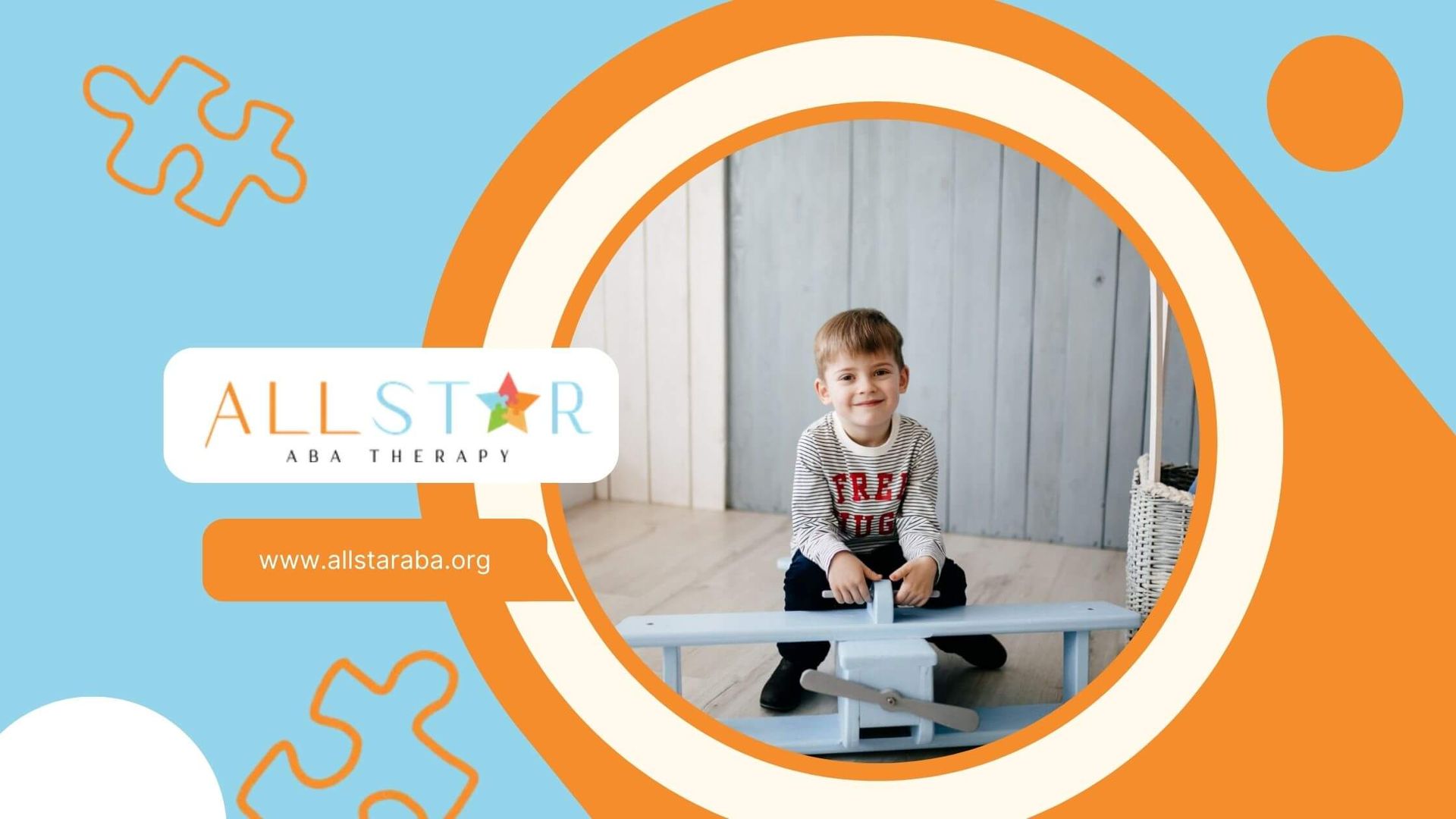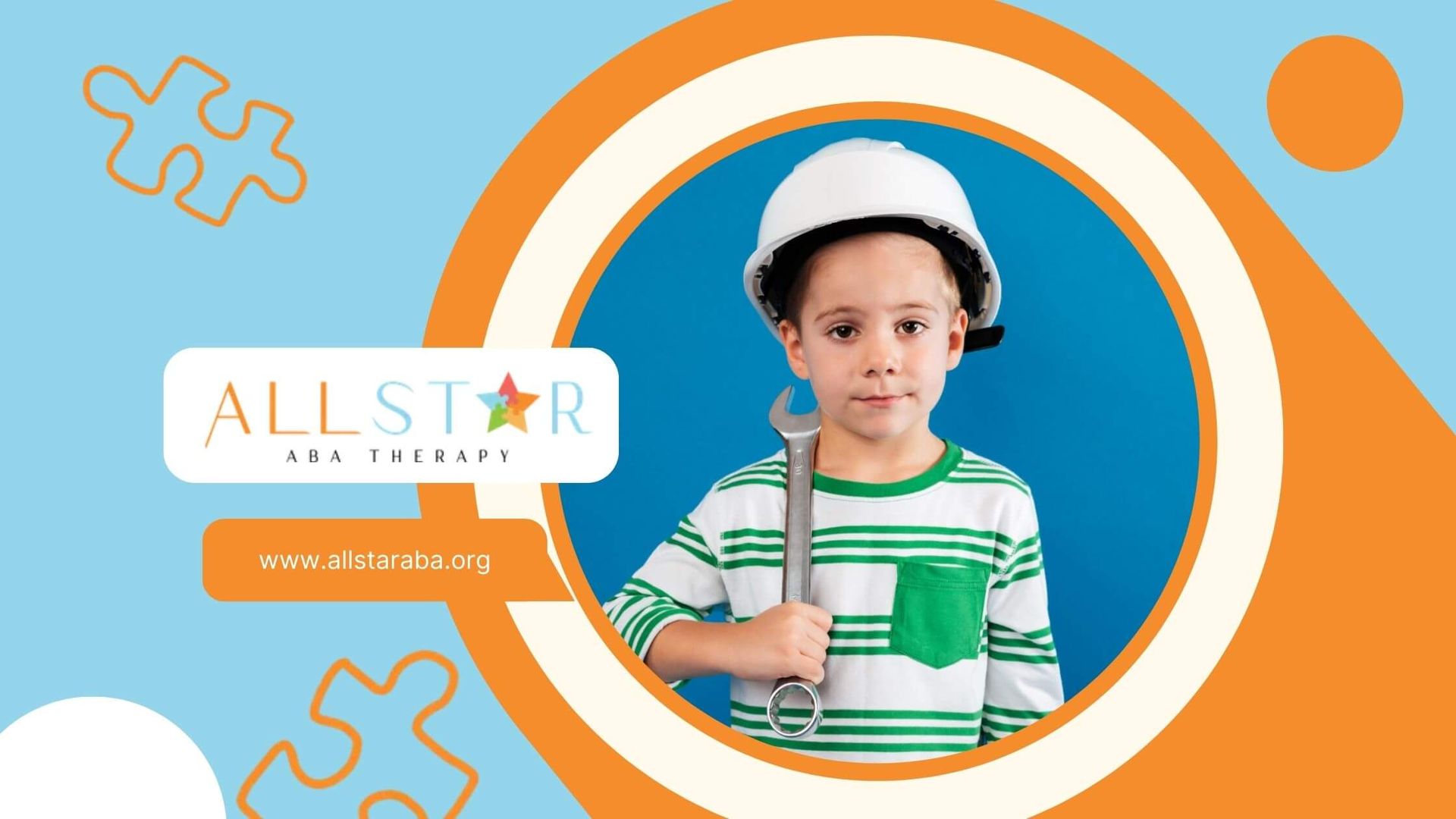New Paragraph
5 Positive Words to Describe Autistic Child Empowerment
Key Highlights
- Celebrating autistic children’s strengths by highlighting their innovative thinking, resilience, and creative problem-solving unlocks their potential.
- Positive words foster empowerment by shaping perceptions and promoting self-esteem, which is essential for neurological development.
- Understanding autism spectrum disorder allows for accurate recognition of unique qualities and helps dispel stereotypes and misconceptions.
- Empowering autistic children requires creating nurturing environments that value their individuality and encourage their social interaction.
- Facilitate inclusive, supportive communities by advocating acceptance and promoting neurodiversity through effective communication strategies.
Introduction
Autism is a condition that affects how people communicate, behave, and interact with others. We can help autistic children by using ABA therapy and positive reinforcement. This support can build on their strengths and celebrate their individuality in the autism community. Using empowering words helps shape their identity. It creates a supportive environment and boosts their confidence and skills. This article looks at how encouraging language affects autistic children, explains the autism spectrum, and highlights the importance of focusing on their unique strengths.
Understanding Autism and Its Spectrum
Autism is a condition related to how the brain develops. It shows up in different ways in behavior, social skills, and thinking. It is often called autism spectrum disorder because of the wide range of experiences people have. Each person with autism has their own way of experiencing it. This highlights the need for personal approaches that celebrate their unique traits. Some people may be great at solving problems or showing empathy, while others might have difficulty communicating or feeling sensitive in social situations.
The autism spectrum highlights this variety. It shows that no one label fits everyone. Recognizing these differences means we can see strengths in areas like creativity, honesty, or strength while steering clear of stereotypes based on wrong ideas. Using positive language helps autistic children view themselves in a better light and works to break down biases in society. Through understanding and inclusion, their unique skills can shine in a nurturing environment. This helps them connect meaningfully with family members and the wider community.
Defining Autism in Children
Autism spectrum disorder affects how children develop their brains. It changes how they see and engage with the world. These children might have different eye contact, ways of communicating, and a strong desire for routine. This is all part of their identity. It's important to know that autism is not the same for everyone. Each child is at a different point on the autism spectrum.
Though they may face challenges like communication and being sensitive to sensory input, they also have strong points such as focus and creativity. This diversity in their brain function can lead to new ideas in various areas, including social situations and solving problems. With proper support, autistic individuals can use these abilities to navigate the world around them.
Building positive social interactions is crucial. Understanding their range of strengths and meeting their unique needs with compassion can greatly help their well-being. Promoting awareness within families and communities creates an environment for these children to flourish.
Common Misconceptions About Autism
Stereotypes about autism often tell wrong stories. One common belief is that autistic individuals do not have empathy or cannot make friends. In truth, they form strong emotional bonds and are loyal, but they show this differently than most people. Not understanding these differences leads to harmful ideas that can hurt their self-esteem and social life.
Another myth is that autism comes from poor parenting. This idea has no scientific backing. Autism is linked to neurological development and has nothing to do with how parents raise their children. Such misconceptions lead to judgment and stop people from seeing the unique qualities of autistic individuals.
Lastly, society tends to highlight weaknesses rather than strengths. It often misses their innovative thinking, honesty, and attention to detail, which add value to communities. It is important to break these stereotypes using education and positive reinforcement. This helps create spaces that value neurodiversity and inclusivity. Let’s keep challenging myths and sharing correct information.
The Power of Positive Descriptions
The words we choose to describe autistic children have a strong impact. The way we speak shapes how they see themselves and how others see them too. Using positive words that highlight their unique qualities, like creativity and resilience, can boost their sense of self. This kind of language helps build their self-worth, increasing their confidence in social situations and supporting their neurological development.
Using inspiring language also brings acceptance in families and communities. It changes spaces into welcoming environments where autistic individuals feel valued for their talents. This helps them grow and belong in society.
How Positive Words Shape Perception
Positive language is important. It helps change how we see and interact with autistic individuals. Using words like "resilient," "bright," and "creative" highlights their strengths. This pushes aside any wrong ideas people may have. When we focus on what they can do, it leads to appreciation instead of judgment, changing how society views them.
When caregivers and educators use positive words, it boosts confidence. This makes challenges feel easier to handle. Empowered children feel more relaxed in their autism community. They accept who they are and can form strong relationships.
Also, using positive and descriptive words creates caring and inclusive environments. This helps with communication and encourages autistic children to share their thoughts without being afraid. With regular praise, they can discover their strengths and celebrate their individuality.
The Impact of Language on Self-Esteem
Words have a big effect on an autistic child's self-esteem. When we talk about their abilities in a good way, like saying they are "unique" or "insightful," it shows their value. This helps fight negative thoughts. Such positive reinforcement builds their self-worth. It also encourages them to explore their strengths and talents.
When we use words that focus on their achievements instead of what they struggle with, it boosts their self-worth. Making these small changes in how we communicate can support ABA therapy efforts and help kids make more progress. A child who feels proud and recognized will be more eager to reach their milestones.
Also, regular positive reinforcement helps them bounce back from setbacks. It gives them the power to keep trying in social settings and for their personal growth. When we use words that celebrate their individuality, caregivers and educators offer emotional support. This creates a positive environment that helps with their lifelong development.
Empowering Words to Describe Autistic Children
Using positive words to describe autistic children highlights their unique strengths and builds self-confidence. Calling them resilient or curious shows their amazing ability to face challenges and follow their passions. These words help them feel like important members of the autism community.
Using encouraging words also fights against stereotypes. Pointing out their authenticity, creativity, and honesty helps affirm their identity and supports inclusion. Positive language is key to shaping how a child sees themselves. It also helps create spaces that celebrate neurodiversity.
"Innovative" - Embracing Creative Thinking
Labeling an autistic child as "innovative" highlights their creative thinking. It shows how they find new ways to solve problems. Their unique qualities help them create different solutions. Whether it is in art, science, or everyday tasks, their skill in problem-solving stands out.
To support this strength, we should give them chances to express themselves. Doing activities like brainstorming, hands-on projects, or artistic work encourages their creativity. When we encourage them, we help them be innovative and show their contributions in various areas.
Seeing their talent for creative thinking helps break down stereotypes. It goes against the misconceptions that say autistic children think in rigid ways. In fact, many of them are great at thinking differently. By nurturing this talent, caregivers can help them develop their skills and share their talents with the world.
"Resilient" - Highlighting Strength in Challenges
Resilience is a key strength of autistic children. They face communication challenges, social situations, and sensory sensitivities. Overcoming these obstacles takes a lot of determination. Their ability to push through shows their amazing inner strength.
Talking about their resilience can boost their confidence. Positive reinforcement helps them deal with challenges. This support prepares them to handle changes or surprises more easily. Focusing on this strength helps them see their own growth and progress.
Parents and teachers can boost resilience with encouraging words like “strong” or “determined.” These notes about their skills help build their emotional strength and lead them toward success. Their resilience shows how flexible the human spirit can be.
"Insightful" - Recognizing Unique Perspectives
Recognizing the unique perspectives of autistic individuals helps us understand their experiences better. Many autistic children see the world in special ways. This often leads to great insights about what they see around them. Encouraging this thoughtful nature supports their feelings and individuality. When families and caregivers build a community that values these unique qualities, it creates a positive environment. In this space, autistic children feel appreciated and understood. This recognition plays a significant role in their growth and how they interact with others.
"Curious" - Valuing the Quest for Knowledge
Autistic children often view the world in a special way. Their curiosity helps them learn about different things and shows their unique perspectives. When we value their desire to understand, we create a supportive environment where they can explore. This kind of atmosphere helps nurture their individuality and allows them to do well in various areas. By embracing their curiosity, we can lead to real learning experiences that highlight a child’s strengths. It also encourages positive social interactions within the autism community.
"Genuine" - Appreciating Sincerity and Authenticity
Recognizing the truthfulness of autistic individuals shows their realness and different viewpoints. The honesty they show goes deeper than simple chats. It adds meaning to social situations. Supportive environments help autistic children show their individuality without worrying about being misunderstood. Helping caregivers see and celebrate this realness not only fights stereotypes but also improves positive social interactions. This way, safe places can be created where true connections grow within the autism community.
Strategies to Support Autistic Children's Development
Creating a nurturing environment is very important for autistic children. Using positive reinforcement helps them reach their milestones and boosts their confidence. Also, using effective communication strategies, like visual schedules, makes it easier to talk with them in a way they understand. Encouraging social interaction in supportive communities helps people understand and feel empathy for each other. When we value each child’s unique strengths, it creates a feeling of belonging. By using these strategies, we can promote understanding and acceptance, improving the lives of autistic individuals and their families.
Encouraging Individual Strengths and Talents
Celebrating the unique strengths of an autistic child creates a nurturing environment that focuses on their individuality. When we recognize their special talents, it boosts their self-esteem and helps with effective communication strategies. Caregivers can explore various areas like art, music, or technology to build a support system for growth. Using positive reinforcement and understanding the child's unique needs leads to meaningful achievements and helps promote real social interactions. This support strengthens their identity and helps them reach important milestones.
Creating an Understanding and Supportive Community
Building a strong and welcoming community means creating an environment that welcomes neurodiversity. Accepting the unique qualities of autistic individuals is key for their growth. Family members and caregivers are very important here. They help create safe spaces where effective communication strategies can work well. Promoting positive reinforcement in social situations helps build confidence and can make it easier to face communication challenges. When we emphasize compassion and empathy, it helps form connections. This allows autistic children to show their individuality while making good relationships in their communities.
Conclusion
Embracing the different qualities of autistic individuals makes the journey to empowerment very rewarding. A nurturing environment that values their unique traits helps them grow and build on their strengths. Using positive language and encouraging understanding among family members and the wider autism community can help support their development. Supporting authenticity and empathy fights misconceptions and helps create strong connections. This way, autistic children can thrive and achieve their full potential in different social situations.
Frequently Asked Questions
What are some positive impacts of using empowering words for autistic children?
Using strong and positive words builds self-esteem. It helps autistic children become more resilient and grow a positive sense of self. This way of speaking cares for their unique strengths. It makes them feel understood and important in their community. Supportive language can really boost their emotional and thinking skills.
How can parents and educators implement these positive descriptors in everyday interactions?
Parents and teachers can use positive words in everyday talks. They can give clear feedback and show these good traits themselves. Celebrating wins and encouraging kids to ask questions makes a space where children feel important. This helps them build their strengths and creates a friendly place for learning.
SOURCES:
https://www.helpguide.org/mental-health/autism/autism-spectrum-disorders
https://raisingchildren.net.au/autism/learning-about-autism/about-autism/asd-overview
https://www.autistica.org.uk/what-is-autism/autism-myths-and-causes
https://jeevaniyam.in/positive-language-in-autism-care/
https://www.helpguide.org/mental-health/autism/helping-your-child-with-autism-thrive
Need Support?
We're Here to Help!
Our experienced team is ready to assist you. Reach out today to discuss how we can support your child's development and well-being.
Get started with expert ABA therapy today.








